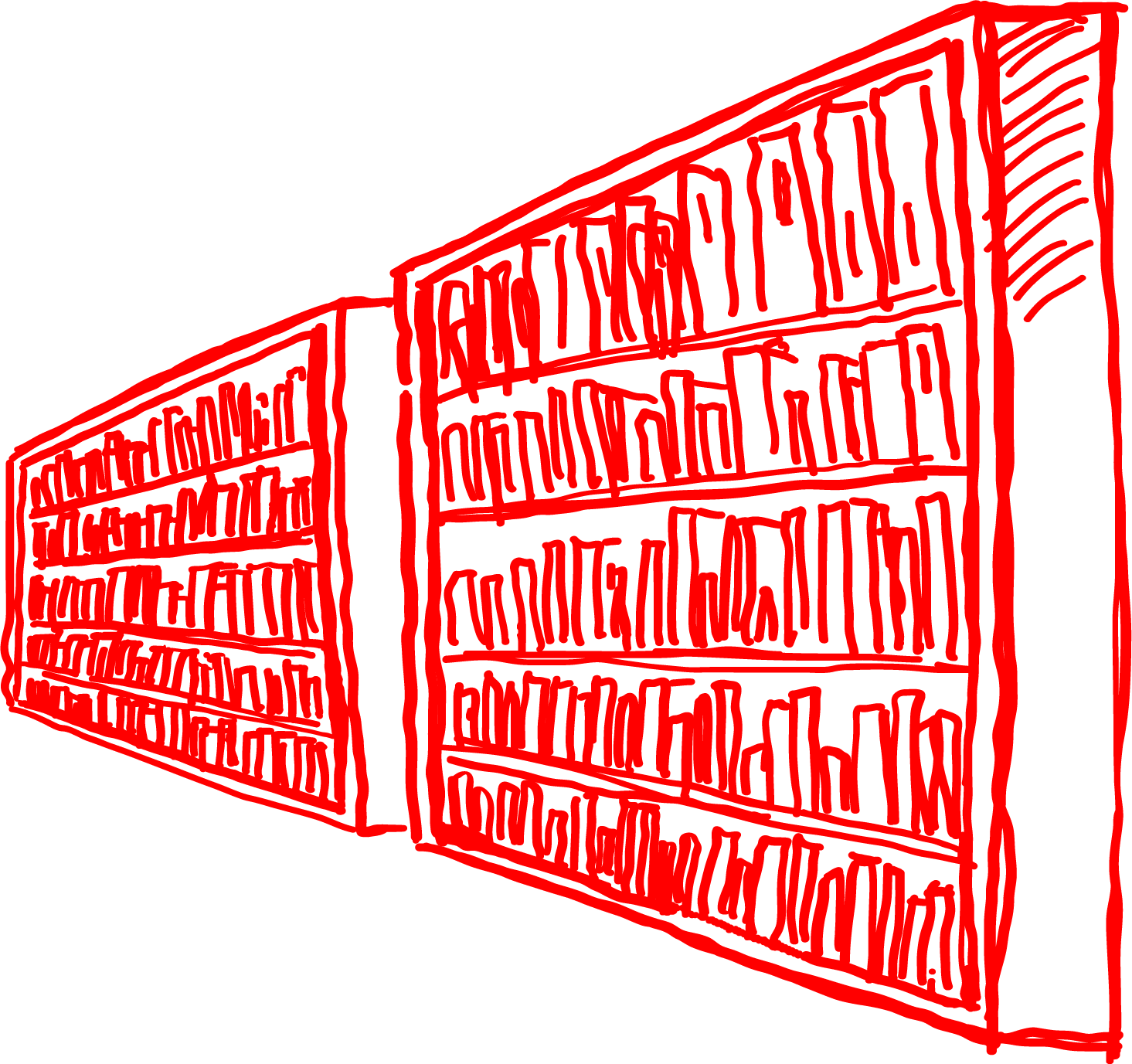

Hello Lisa, would you like to introduce yourself briefly?
Yes, well, I'm Lisa, I've been working in a bookstore for five years now, but I also studied graphic design with a focus on text and typography.
Very nice. What does a typical working day look like for you?
My day in the bookstore starts at a quarter to ten. Then we all meet and together we unpack the books that have just arrived. Both customer orders and those for the warehouse. And then the phone usually starts ringing soon. What is particularly exciting is that there are a lot more calls happening on Mondays. Apparently every Sunday always has time to think about what kind of books to read next. And then it actually starts right away, so we discuss what is going to happen and we always split it up among ourselves. For example, answering emails, answering the phone, standing at the checkout, serving customers or preparing a post for Instagram, because we have been very active there recently. In fact, my graphic design studies also help me with various tasks. Bookstore is quite a free field with plenty of space for creative ideas.
This course prepares you for almost anything. What about your customers: Do they come to you with their own wishes or do they prefer to get advice?
That's so fifty-fifty I would say. Many come with an order, they may have read an article and then specifically want this book, but in our bookstore we are already trying to focus on advising and building a reputation for it. Especially since we have a very large book chain almost directly across from us. And that's actually the most fun.
And where do you actually get the knowledge for your advice from?
Most of all by reading it ourselves, of course. And then we also inform ourselves about reviews. And every six months we always receive the publisher's previews as catalogs. Looking through them is sometimes very fun, sometimes exhausting, but often very inspiring.
How is the publisher's program presented?
These are very classic order catalogs as you know them from mail order companies. In it you will find a photo of the author and a short blurb for each book. Sometimes there are press reviews or the comment that this is our press focus, that is discussed in this and that magazine. Then you usually already have a picture of what kind of target group the book is addressing. Large publishers also have complete book towers that you can order, as you can often find them in large bookstores. Of course we don't buy something like that ...
And how do you actually get these catalogs?
We are just registered as a bookstore in the commercial register and the representatives of the publishers usually approach you themselves. Or, if I now discover a new publisher, for example, I write to them and ask if they can send us a preview. Especially the small publishers have no representatives, so you usually communicate personally with the boss.
How do you then find the small publishers?
Well ... (laughs) sometimes by looking at bookstores in other cities. And of course on the internet. Also on Instagram. The small publishers are usually represented with profiles. That's just really a good information platform for that.
I would now describe your range as rather demanding, do you have any criteria according to which you choose books?
We actually really do it on a gut feeling. That works very well so far. You always take a certain risk with small publishers and you really have to read the books to know what you're getting at. And we have also observed that books with certain covers, for example, are not touched at all. In children's books, and in general, we focus on liberal progressive topics. Also simply with direct messages in how boys cry or there can also be two dads. As an adult, you might understand immediately that that's the direct message, but for children it's still a story. That is an important criterion because it is a slightly different children's book. Of course we also have Frederick or Janosch, who are of course different but more established. In general, it is important to us that the books contain this other educational value.
And then who will typically buy a children's book from you?
We actually have a very diverse audience, but mostly young parents. And you can also see that adults are totally enthusiastic about a book and the children are not at all.
And do children sometimes choose the book?
So, they are already watching and most of the time, the selection is made together. But above all the adults need advice, while the children simply see for themselves. And there are really regular customers among the children.
Do you have a favorite children's book?
I actually have! There is such an illustrator who makes wonderfully subtle sarcastic books, with books like that I don't even know whether children actually understand that. For example there is one with two turtles who can find a hat that they cannot take with them because there is only one and that would be unfair. That’s really great.
And finally, do you have an opinion on why children should read?
Well, for the same reason everyone should read: It stimulates the imagination and empathy, is entertaining, and it teaches you different perspectives on the world. And I think you can sometimes help yourself with a book in difficult situations and you should learn that as early as possible.